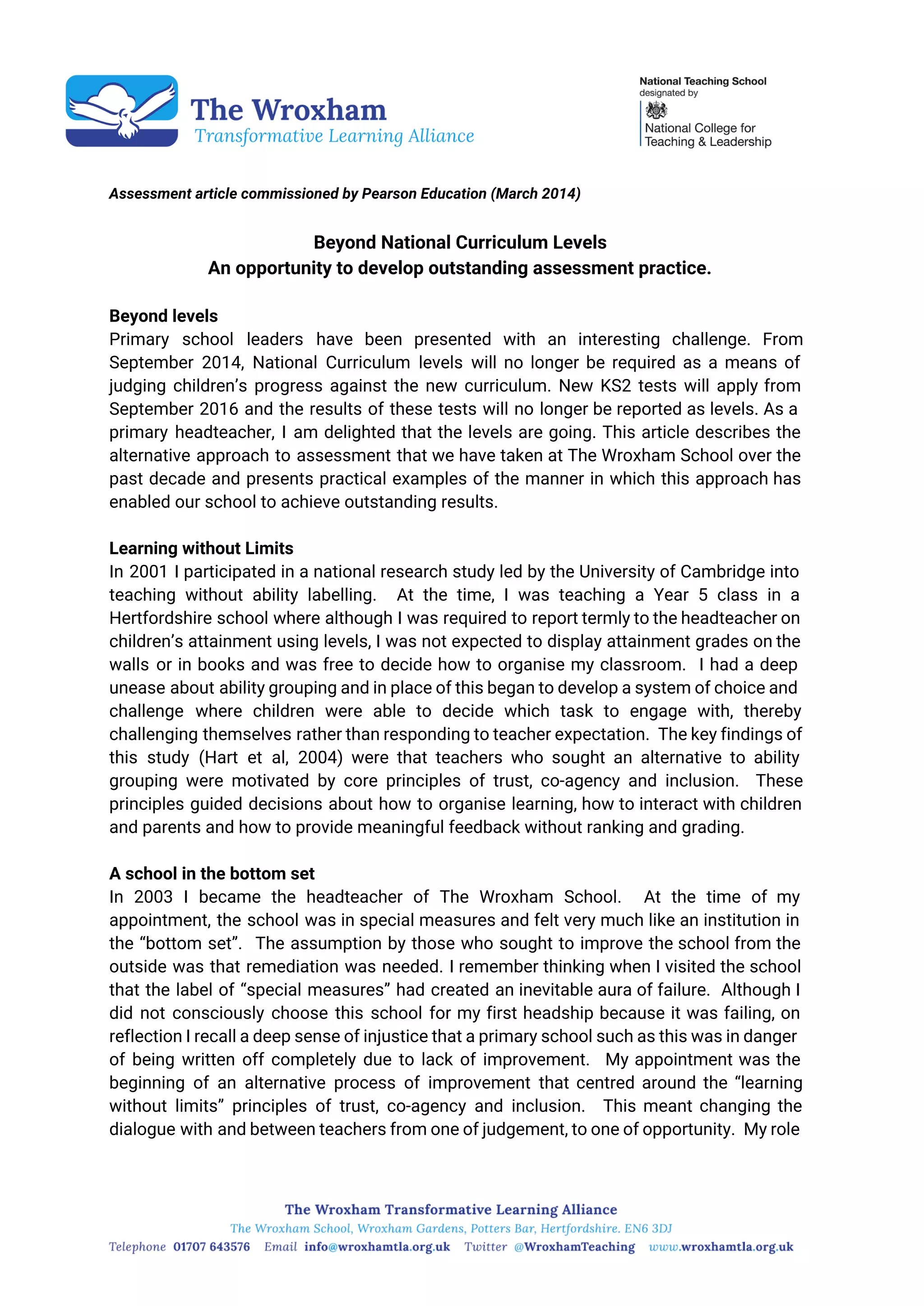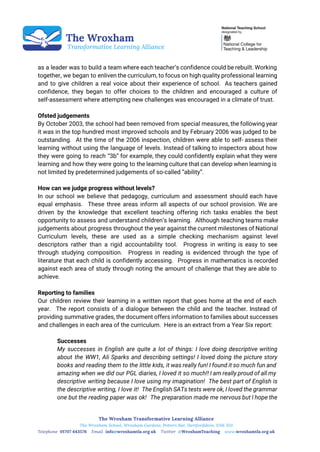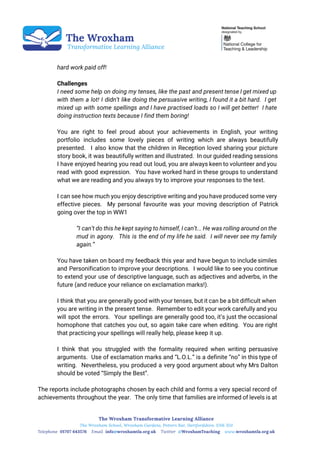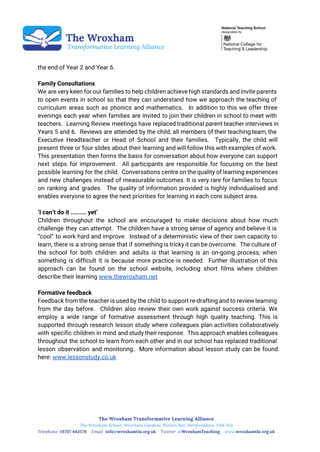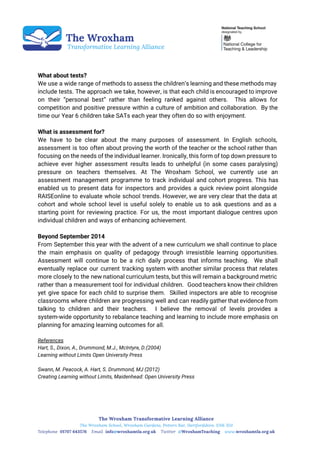The document discusses an alternative approach to assessment that does not rely on national curriculum levels. It describes how the Wroxham School assesses student progress through examining the quality and complexity of student work in different subject areas. Student reports include a dialogue between the student and teacher about successes and challenges, without grades. Family meetings focus on learning experiences and goals rather than measurable outcomes. The school aims to give students a growth mindset and agency over their learning through choosing appropriate challenges.
